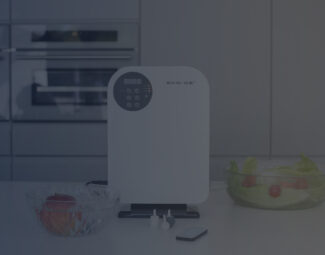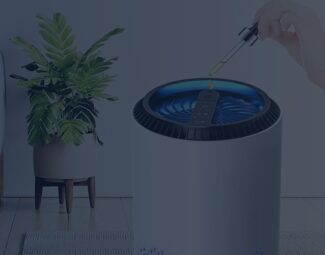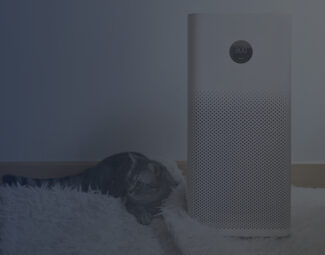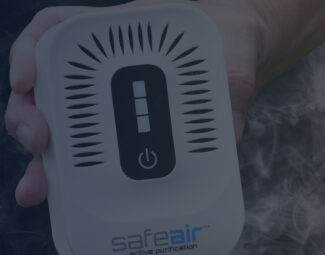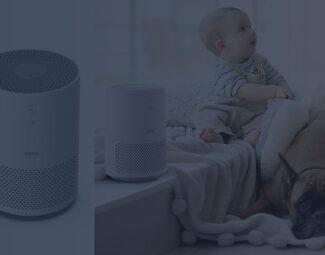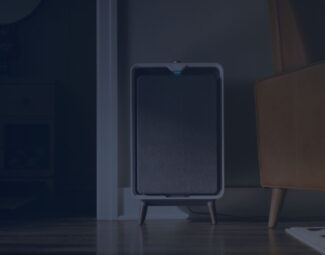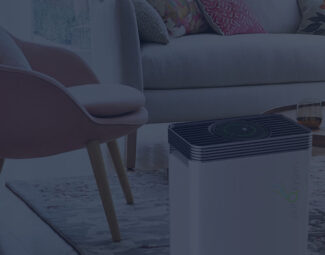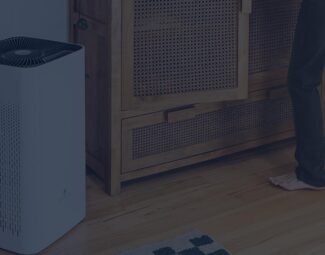H aving a pet is a great experience, one that most people get to enjoy by adding animal companionship into their lives. However, while there are quite a few considerations to take into account with owning a new pet, like the fact that you must clean up after it, groom it, love it, and feed it, with cats there’s an added issue as opposed to dogs and other animals – the likeliness of developing or aggravating pre-existing allergies to it.
There are air purifiers for allergen removal, but are these systems dependable for helping you coexist under the same roof with a cat? What about air purifiers for pet owners, systems that promise to target even unwanted smells and hairs? If you or another household member are allergic to cats, don’t waste money – first, make sure that an air filtration system can help with the condition.
Here, we will look into this topic, learn a bit more about these allergies, the role and efficiency of air purifiers, as well as additional measures to use if you want to live with the feline in the same house without repercussions, so stick with us until the end to see if this is a viable resolution to your problem.

Asian Young Woman Suffering from Allergies to Cat Fur
What Is the Cause of Cat Allergies?
A common misconception is that people are allergic to the fur of the cat. No, it’s not the luscious coat that’s making you sneeze and get rashes all over your skin, but rather a protein found in the saliva of the pet – the Fel D1 protein, to be specific. When the cat licks its coat, the saliva, which is filled with the aforementioned protein, sticks to the fur, and as it dries up, it eventually becomes airborne, so it’s only a matter of time before you inhale it and your symptoms start to act up.
Cat allergy symptoms:- Nasal congestion;
- Runny nose;
- Wheezing;
- Sneezing;
- Coughing;
- Skin irritation;
- Watery eyes.
Factors that affect allergen production:
- Male vs. female: Male cats produce secretions that are more concentrated and allergenic as opposed to their female counterparts.
- Kittens vs. adults: The adorable and still developing kittens are less harmful to allergy sufferers, to begin with, as they produce fewer allergens. While the pet is a cub, you are unlikely to have any negative reaction to its presence, for short.
- Neutered is the way to go: There are a few benefits to neutering your cat if it’s a male, and one of the most prominent pros is that it won’t produce as many allergens anymore.
- Light vs. dark: For an unknown reason, it has been discovered that light-coated cats produce fewer allergens than dark-coated felines, so this is an aspect you should take into consideration in case you haven’t gotten a cat yet.
Can an Air Purifier Help Remove Pet Dander?
Do air purifiers work for allergies? More specifically, are these systems cut out to handle the specific allergy-triggering particles produced by cats? These are the questions you came here to receive answers for, so let’s get straight to the point.
Yes, air purification systems can help alleviate cat allergies if they feature the right media for it. For trapping of allergens, HEPA filters are needed as dander and saliva particles that come from the felines are among the smallest polluting particles found in indoor air and can linger the longest in it too.

HEPA and Activated Carbon Filters for Dander and Odor Removal
HEPA Filter and Dander Reduction
There are quite a few types available when it comes to how air purifiers work, but none other compare to HEPA systems when it comes to pollutant particle reduction as these systems not only deal with impurities down to 0.3 micrometers, which means that even the ultra-fine cat dander and saliva won’t escape their operation, but their efficiency rate is over 99.97% as well (beware that this is applicable only with True HEPA filters, not with HEPA-like or HEPA-type models).
As long as you play your part right when it comes to maintenance and you make sure to either clean the HEPA filter when the time comes or replace it as instructed if it is not a permanent/washable type, then you won’t see any decline in its performance, and you can follow through with owning a cat as a pet despite being allergic to this animal.
Recommendation: Opt for an air purifier that, aside from HEPA filtration, also features activated carbon filtration as it is the most effective means to deal with odors. Regardless of how much you groom and wash your cat, smells are still likely to invade your home when it comes inside dirty or does its business, so you should take advantage of this technology to ensure fresh air in your home.
How Do I Choose the Right System?
Aside from the fact that the air purifier must use HEPA-grade filtration in its operation, there are a few aspects to consider when you purchase to make sure you are acquiring a system that complies with all of your needs:
- Placement/sizing: Where you place the device is quite obvious – in the room where your pet spends most of its time. Where exactly you position it is up to you, as long as you make sure to clear any obstructions that might interfere with the fan pulling in polluted air from the space. The real trick is size, however. A big secret to success is properly sizing the air purifier, and for this, you have to calculate the room size and find a matching system.
- Added carbon filter: As aforementioned, the only viable solution for pet smells is the presence of an activated carbon filter. Moreover, what it provides extra is smoke reduction, so if tobacco smoke is an issue in your household, you won’t have to put up with it anymore due to this filtration means.
- CADR: Check the CADR ratings to see how the device scores in terms of operating speed and efficiency toward the removal of smoke, dust, and pollen from the air when placed in a suited-size environment.
- ACH: How many times per hour the device will rerun its operation, covering the whole area to leave behind clean air. The more, the better, being preferable that you opt for a minimum of 4 air changes per hour (once every 15 minutes, the system runs its course to trap any allergens and particles found in it so that you are ensured clean air at any given moment).
- Added features: While the list of essential features and options is quite long, there are a few you should make a point for the product to come with. This includes a UV sterilizing light that flaunts germicidal properties and sanitizes the air, multiple fan speeds that provide you control over the operating manner, and air quality sensors that enable automatic cleaning based on current air purity levels, to name a few.
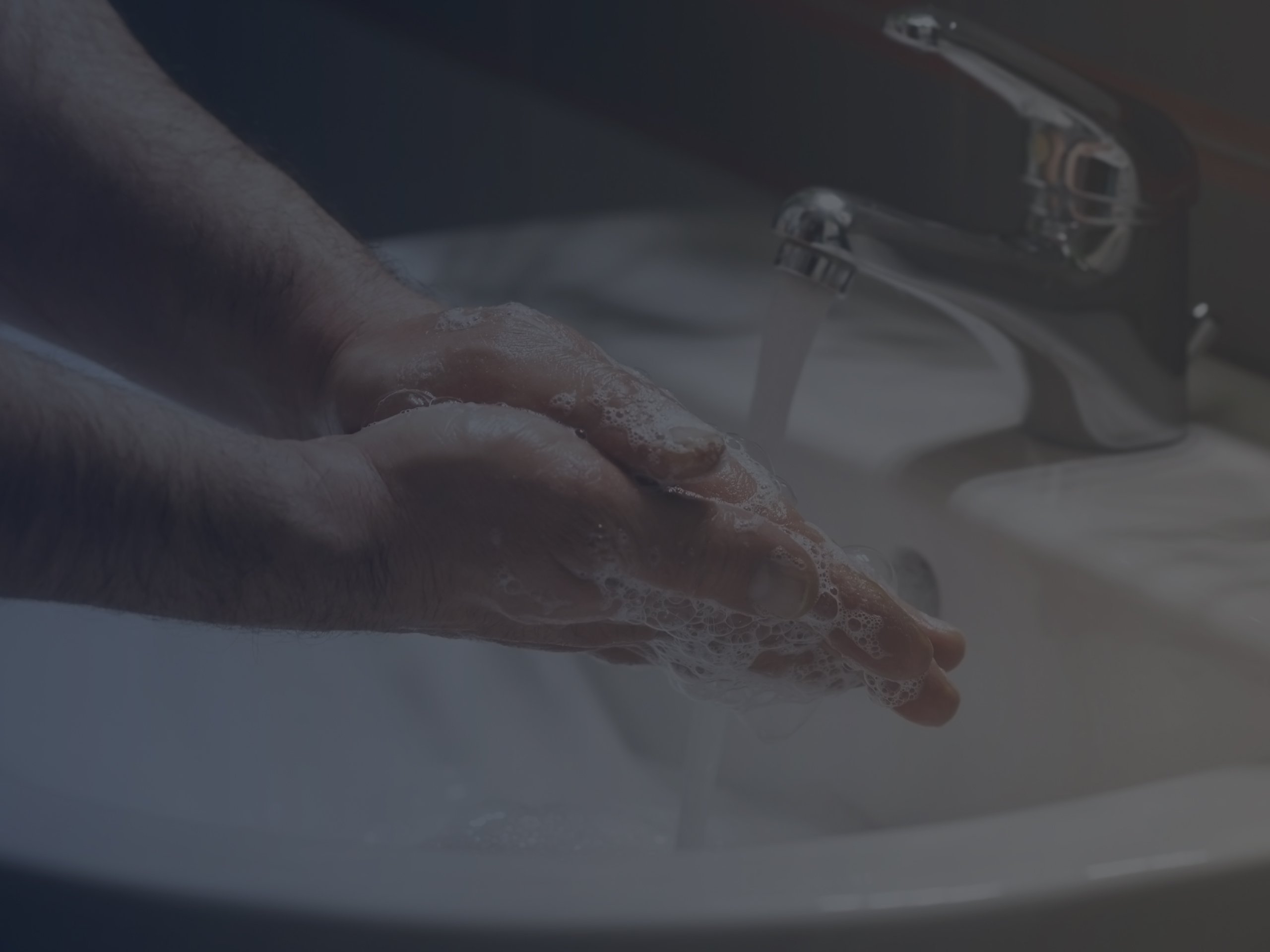
Man Washing Hands
What Else Can You Do to Deal with Cat Allergies?
Your goal is to make your home as allergy-free as possible. To achieve it, you shouldn’t solely rely on an air purifier as there are other measures that you can take to control the environment better and make your home a safe space that you can share with the cat without unwanted reactions on your part.
- Set up some ground rules: Get a washable, hypoallergenic pet bed for your cat and train the animal to use it rather than allow it to roam around on your bed, over your sheets. Cat dander on your sleeping surface is sure to instantly trigger symptoms, causing other problems too as you won’t rest as well either, so your immune system will receive more than one blow.
- Always wash your hands: A piece of advice you are likely more than fed up with by this point is to wash your hands before you touch your face or eyes. But this isn’t a piece of advice you should only follow when you go shopping as it’s COVID-19 pandemic season. The same advice goes when you are at home if you have a cat. As clean as you consider the animal to be, the truth is that the coat can harbor microbes and particles that can cause your eyes to become watery and swollen, so you must practice proper hand hygiene to be safe.
- Cleaning routine: You don’t have to wash the cat daily, but what you should do is daily wipe off any dirt on its coat using pet wipes. Remember to brush and groom the pet routinely to keep your home clean and free of hair, as well as reduce dander.
- Vacuum regularly: Dander and hair fall to the ground at times. If you don’t vacuum these up, they will end up in the air, and you’ll inhale them. To prevent this and to aid the device do a better job as well, you should vacuum all floors and carpets 2-3 times per week, especially in the rooms where the cat hangs out the most.
- Steam the carpets: Nothing penetrates carpets and furniture fabric better than steam, and as allergens are likely to sink into these fibers, which makes it hard to vacuum them up, you should also use a steam cleaner on these surfaces to create a healthy space to live in.
Your Questions Answered
Question #1: Is it possible to live with a cat if you are allergic?
Answer: Unless you suffer from severe allergies, you can coexist with a cat in the same home without a problem. Just use an air purifier with specialty filter media that captures the dander and other symptom-triggering particles from the air, and if you ever have a crisis, just use some over-the-counter medicine for this issue.
Question #2: Can you suddenly develop cat allergies?
Answer: All types of allergies, not only those to animals, can develop at any given point in your life. Thus, even if up to this point you have never sneezed or had any unwanted reaction when around your cat, this doesn’t mean that you won’t over time, especially seeing how felines are known to cause an allergic reaction in humans, at a higher rate than dogs.
Question #3: What cat is best for someone with allergies?
Answer: The breeds most commonly recommended for allergy sufferers who still seek the companionship of a feline pet include Javanese, Sphynx, Siberian, Cornish Rex, Devon Rex, Balinese, and Oriental Shorthair.
Question #4: Which cats are worst for allergies?
Answer: The two worst breeds for sensitive, allergic individuals are Persian and Chartreux. As adorable as these kitties are, they will make your symptoms go haywire whenever you are around each other. An air cleaner might help the issue, but instead of expecting miracles from the device, better steer clear of these specific breeds and get yourself a cat breed that is less harmful to allergy sufferers.
Question #5: Does brushing a cat reduce dander?
Answer: Yes, it does help, and seeing how the dander is an allergy-causing pollutant, you must brush the cat three times per week at least (with long coat cats, do it daily) to remove dander, as well as fur, preventing them from becoming airborne.
Conclusion
The market is filled with air purifiers that serve different purposes, and as you can see, if you know what to look into, you can indeed find one to help with your cat allergies and make it possible for you and a feline pet to inhibit the same space. With a True HEPA and an activated carbon media system you can’t go wrong, the irritations, wheezing, and other unwanted symptoms being tamed or eliminated as the ultra-fine particulates that cause these reactions won’t be present in the air, to begin with. So, in the end, it is possible to have a cat even though you’re allergic – just know what air filter system to rely on so that both of you can sleep in the same room without instant health repercussions occurring.



